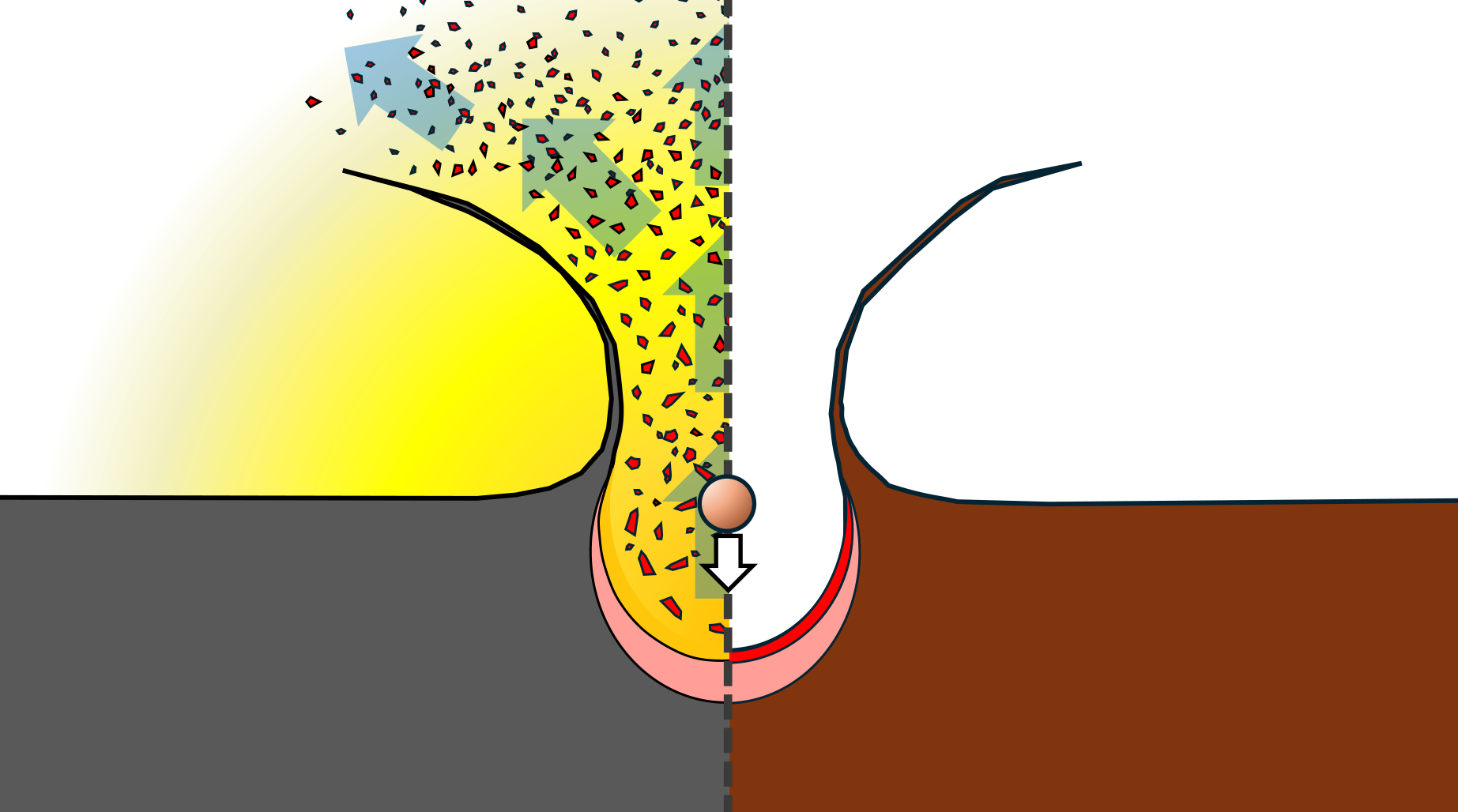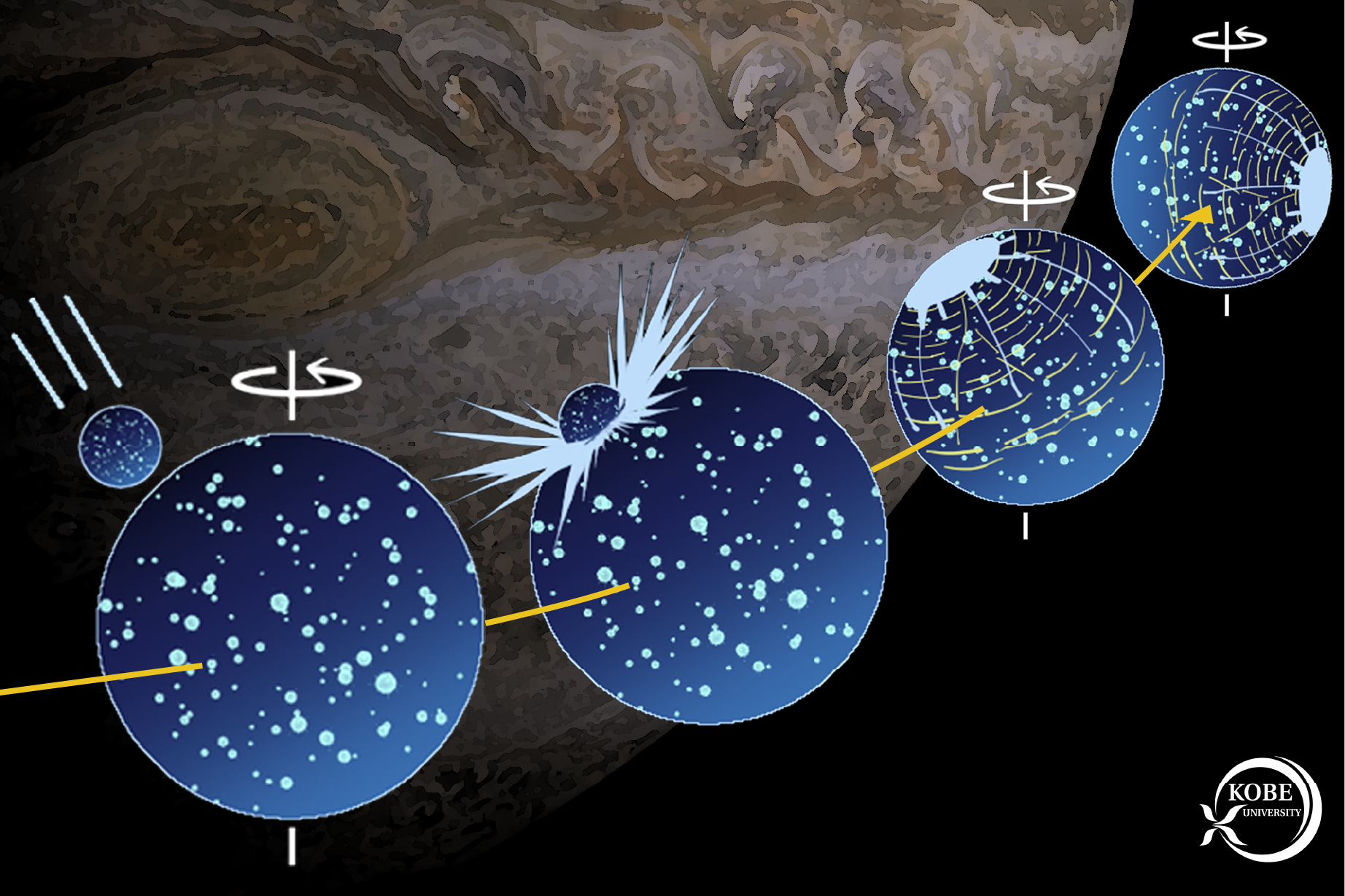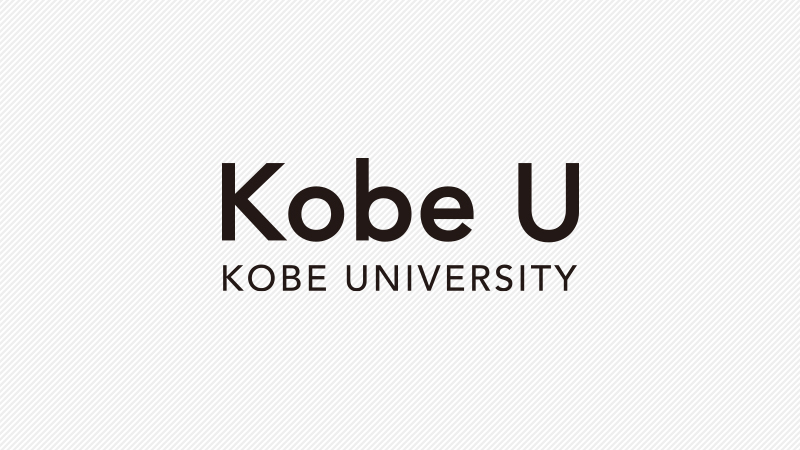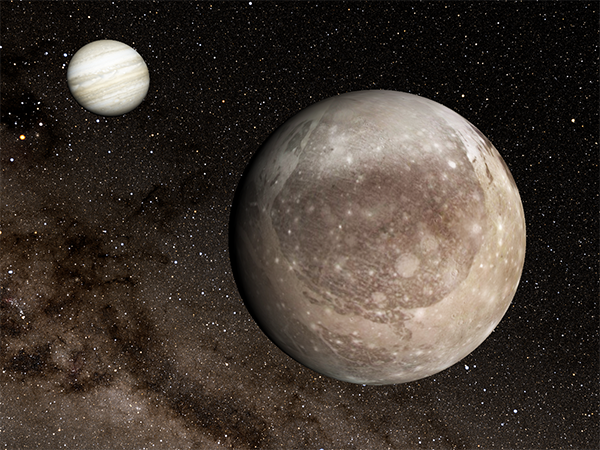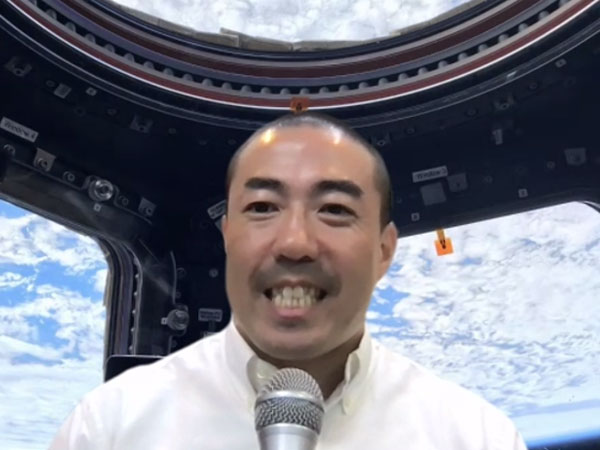
In mid-October 2022, Kobe University alumni TAGUCHI Yuske (46) gave a talk on ‘Space Robotics: Paving the way for the commercial space era’ (宇宙ロボットが拓く、商業宇宙時代) at Tokyo Rokko Club. Mr. Taguchi is a graduate of the Faculty of Science’s Department of Planetology and has experience working in a variety of space entities. In his lecture, he combined explanations on how the space industry is accelerating toward commercial utilization and how he developed his career with his deep passion for space.
At the time of giving this lecture, Mr. Taguchi was in charge of business development at space robotics start-up GITAI Japan. Mr. Taguchi has previous experience as an instructor for astronaut and ground controller training at Japan Manned Space Systems Corporation (JAMSS), which is responsible for operating the Japanese Experiment Module ‘Kibo’ on the International Space Station (ISS). He was also seconded to the Japan Aerospace Exploration Agency (JAXA) where he was in charge of training support for JAXA astronauts such as KANAI Norishige.
Chasing childhood dreams
Mr. Taguchi:
Ever since I was a child, I was fascinated by space and naturally wanted to work in the space industry. Due to my father’s job, I lived in the US for 10 years from the age of 4. Growing up in New York and New Jersey, I was able to witness the golden age of the space shuttle. Like all American boys of my age, I also thought astronauts were cool and even after returning to Japan going through middle and high school, I continued to hold on to my dream of going to space. During high school, I was especially moved by the images captured by the Hubble Space Telescope and that was when I decided to pursue astronomy.
After obtaining my PhD from Kobe University’s Graduate School of Natural Sciences in 2005, I wanted to try something new and chose a job in the private sector working on systems development and other aspects. However, through a friendly call from a former colleague, I joined JAMSS in 2013 and returned to the space industry in order to pursue my dream. After that, I dedicated myself to working in the commercial space industry and worked at start-ups including Astroscale Japan (providing services to clean up space debris) and Space BD (striving to “commercialize” space). GITAI Japan, which I joined in May 2019, is the 7th company I have worked for.
Established in 2016, GITAI develops autonomous robots that can conduct various tasks in space including experiments on the ISS. A successful technology demonstration has already been completed inside the ISS and the next proof-of-concept demonstration, this time exposed to the harsh space environment, is planned for 2023.
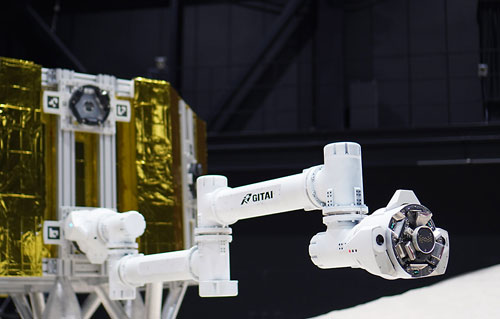
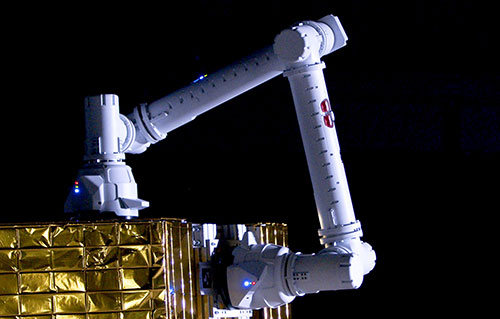
Robots are better suited for space
In the lecture at Kobe University’s Tokyo Rokko Club, Mr. Taguchi talked about how we have gone from the space race era where competition unfolded through the national space programs of countries such as the US and USSR, to an era of cooperation through partnerships on the ISS. He said that ‘From weather forecasts to GPS, space has become an integral part of our everyday lives’.
In addition, private companies have recently been able to launch rockets. ‘It is said that 2021 marked the dawn of the space tourism era; there were more space tourists than professional astronauts in that year’, Mr. Taguchi explained, giving an up-to-date overview of such commercial ventures.
Regarding the potential of labor-performing robots in space, Mr. Taguchi went on to say that ‘It is extremely expensive for people to go to space; just the spacesuit alone costs tens of millions of dollars and with other necessities such as living space and supplies, the cost is exorbitant. On Earth, robots are not as dexterous as people, however the cost of using a robot to complete tasks in space is drastically cheaper. From now on, the need for such work will increase, for example with the construction of new commercial space stations and tasks on the surface of the Moon.’
He finished the lecture with some advice for students: ‘While it is often said that STEM (Science, Technology, Engineering and Mathematics) education is necessary, I think that it is good for arts students to also learn about and understand technology. Definitely study English as well.’
Profile
Born in Ashiya, Hyogo Prefecture in 1976, Taguchi Yuske grew up in the US between 1980-1990. In 2000, he graduated from the Department of Planetology of Kobe University’s Faculty of Science, going on to obtain his PhD from the Graduate School of Natural Sciences in 2005. That same year he started working at Hitachi Software Engineering (now Hitachi Solutions) where he was in charge of system development and international sales. In 2013, he joined JAMSS and was seconded to JAXA in 2016. After working at Astroscale Japan and Space BD, he joined GITAI Japan in May 2019 where he was in charge of business development of space robotics. Since November 2022, he has been responsible for market development of the Asia Pacific region at Axiom Space, the US company that is constructing the world’s first commercial space station that will serve as the successor to the ISS.




